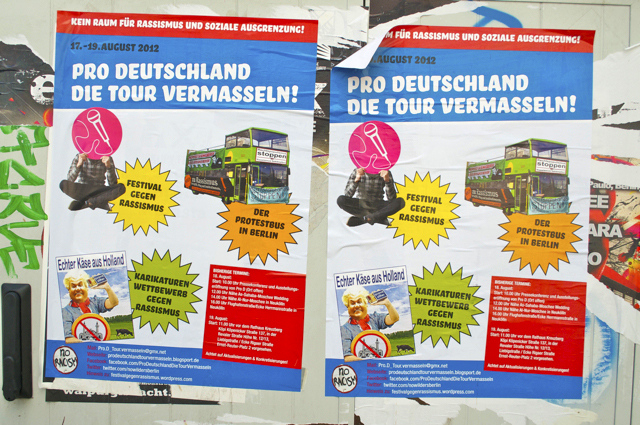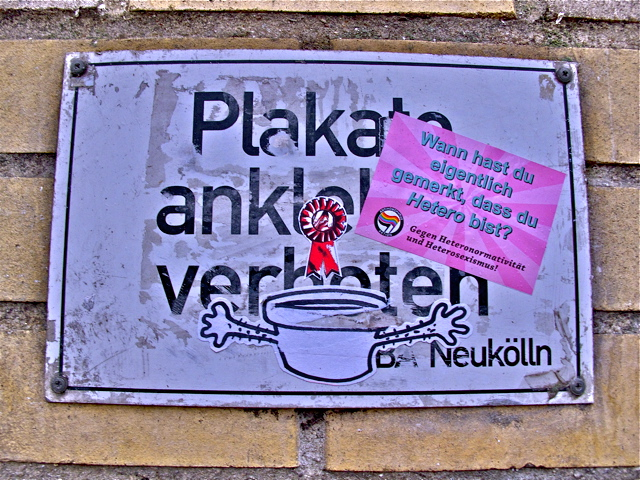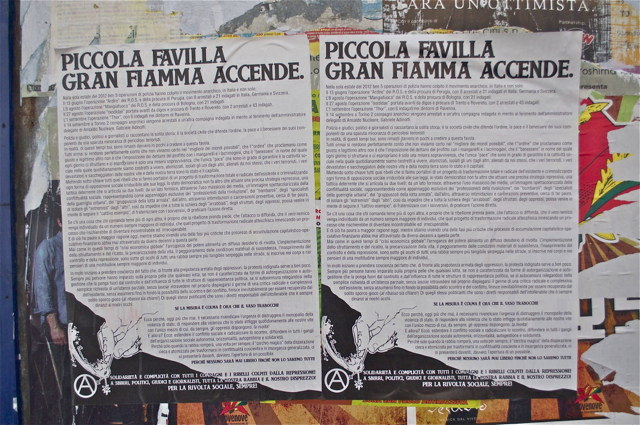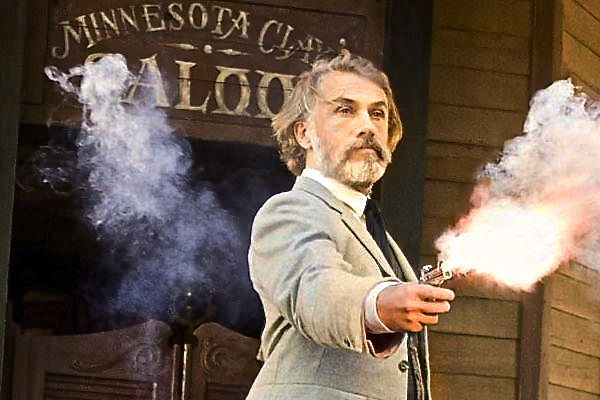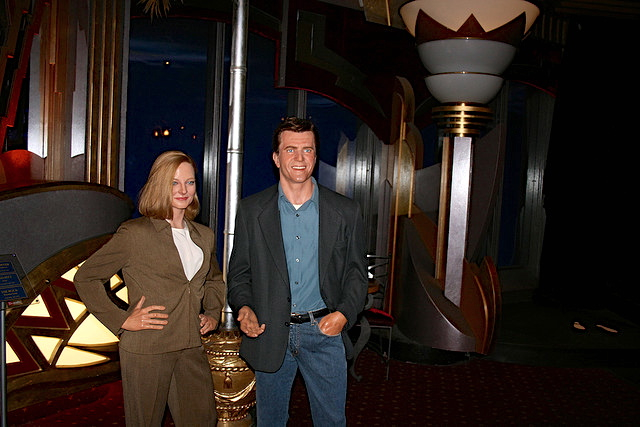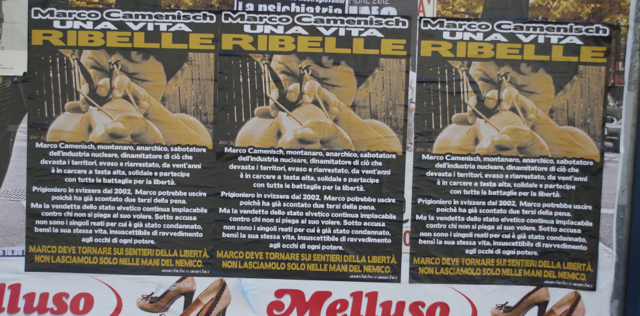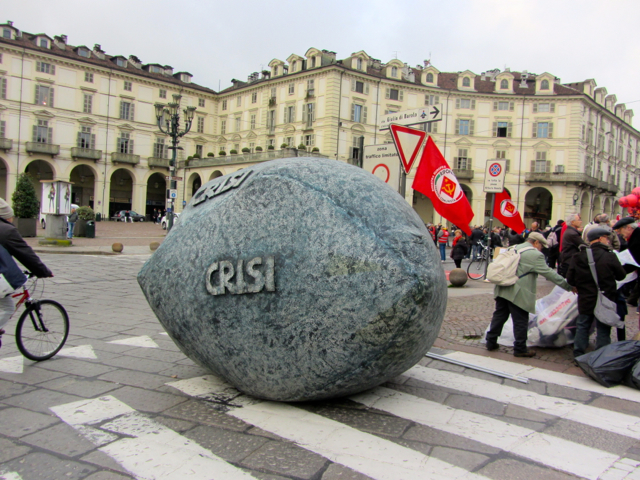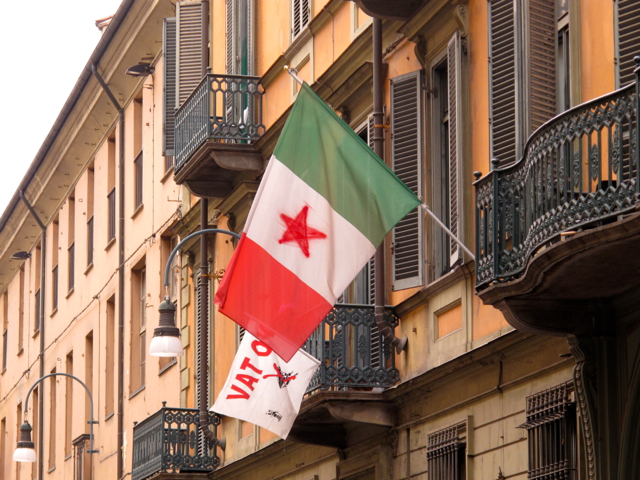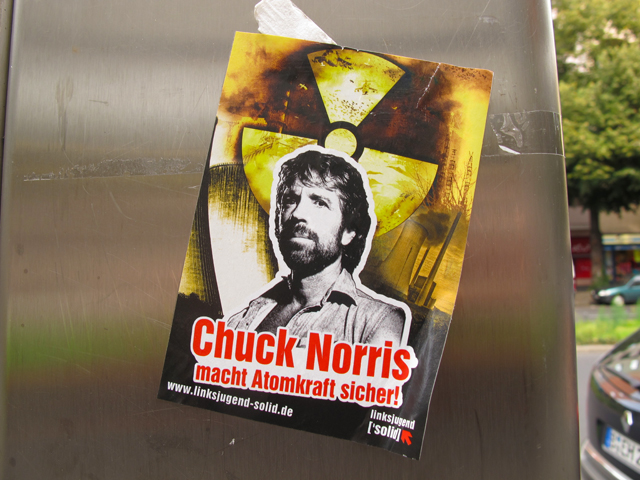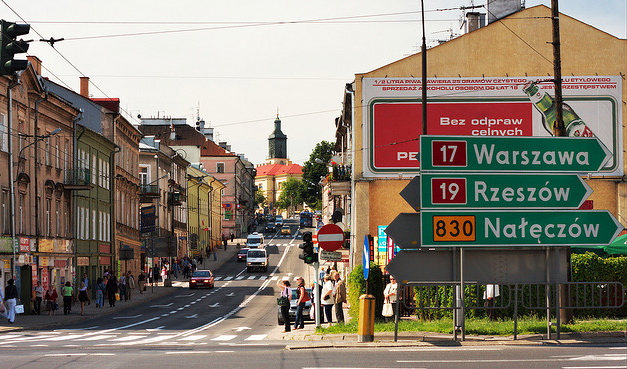While there are good reasons why the denunciation of “fascists” has hardened into a reflex on the Left, there are also good reasons for restraining it. The relentless negativity of this fixation makes it difficult to articulate an alternative to capitalism free of fundamentalism and other reactionary discourses. Although visually all over the place, this poster takes a more positive approach, with significant implications. (More…)
Visual
What does it mean to be an anti-fascist? Never easy to answer, today this question can seem like a Zen koan. First you have to decide what constitutes fascism. Then you have to figure out how to oppose it. Beyond those groups that deliberately invoke the iconography of brown and black shirts — a small number, relatively speaking — there is a wealth of potential enemies. The challenge is to choose them well. (More…)
State repression. Leftwing violence. The dialectic is familiar, worse, discomfiting. There is something decidedly crude about it all, as though such scenarios ought to be a thing of the past, replaced, as it were, by less harmful modes of conflict. What happened to culture jamming? Isn’t alternative consumption enough? (More…)
Since its Christmas opening in the US, Quentin Tarantino’s Django Unchained has generated an extraordinary amount of commentary. Some love it. Some hate it. Almost everyone who sees the film has strong opinions about it. But American fixations — use of the “N-word”, depictions of torture — have overshadowed its most prominent feature: the relationship between a German bounty hunter and his black protegé. (More…)
People are still talking about Jodie Foster’s speech. After receiving the Cecil B. DeMille award at the Golden Globes, she kinda, sorta came out, confirming Hollywood’s worst-kept secret. As Alonso Durade noted, Foster has played the coy card for decades – thanks to her publicist, and the fact that “anyone who has a presidential assassin use you as inspiration rightfully gets a lifetime ‘I want my privacy’ pass.” (More…)
Switzerland isn’t synonymous with the left. Best-known for its banks, it’s more commonly equated with financial services, and the politics such an economic specialty suggests. Independent, historically, from the rest of Europe, the affluent, alpine, multilingual confederation is far more difficult to make sense of than its neighbors. (More…)
What is the best way to handle a legacy of extremism? This is an important question for every democratic government, but particularly in those nations where radical ideology once held sway. And Germany remains on the top of list. No matter how stable the post-war Federal Republic’s political institutions, the Third Reich is never too far from people’s thoughts. (More…)
Piazza Vittorio was empty. With the exception of two elderly men, struggling to inflate what looked like an enormous stage prop. As I grew closer, its details came into focus. It was a fake boulder, with the word “Crisis” (Italian for “crisis,” shorthand for the economic crisis) written on it. (More…)
This sticker, the final installment in Souciant’s series on the German Left Party’s youth outreach campaign, complements the other anti-military message in the series. But, whereas that one builds on a pull-no-punches approach developed in the Weimar Republic, and reanimated by punk, today’s is strangely subdued. (More…)
Squatting is in the news again. This time, as a consequence of a new UK law criminalizing the practice. In effect since November, the legislation could not have been passed at a poorer (to put it bluntly,) time. With the British economy in its fourth year of crisis, there was something especially cruel about the gesture. If you’re homeless, that’s your lot. Shelter is out of the question. (More…)
This sticker, the third in a series Souciant has been documenting, is a pre-emptive strike against its creator’s public image. Earnestness has long been a problem for the Left. Whether your idea of a “leftist” is a Volvo-driving vegan devoted to Democracy Now, or a labor organizer whose idea of fun is to explain, over too many drinks, why Leon Trotsky was a true hero (More…)
Lublin‘s Studio for Socially Engaged Art, led by Szymon Pietrasiewicz (see At War With the Past) designed a social tolerance campaign using hand-drawn images printed on city bus tickets. These pictures presented Jews, Roma and gays as being accepted by soccer fans of the local football club, Motor Lublin. (More…)
